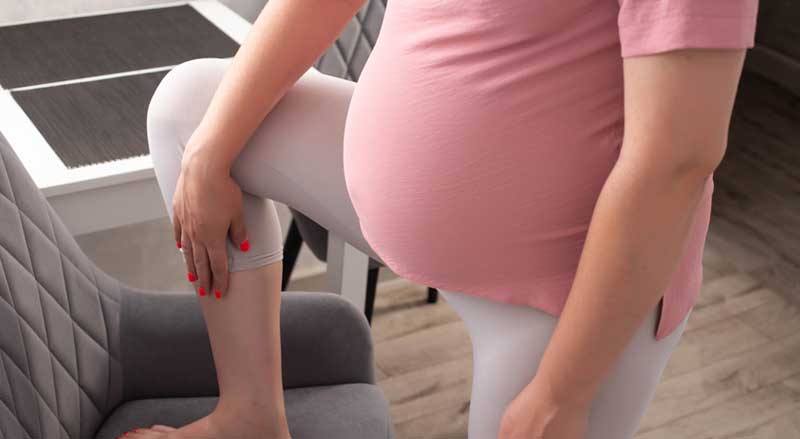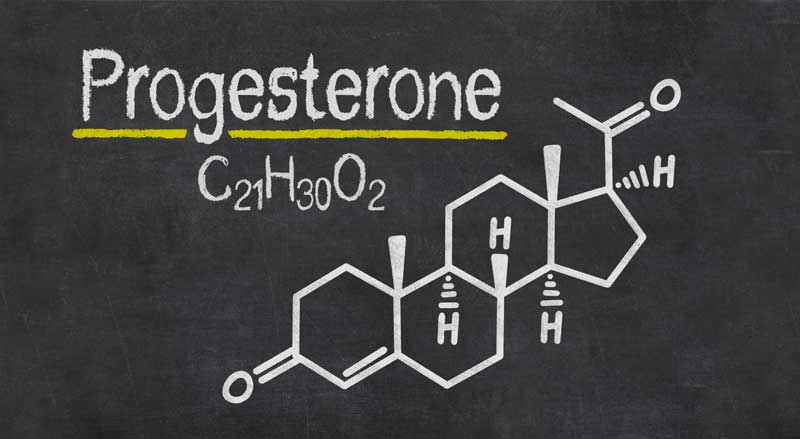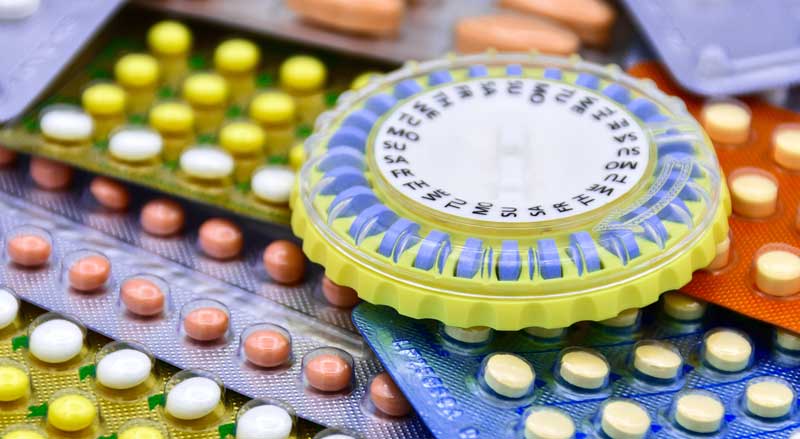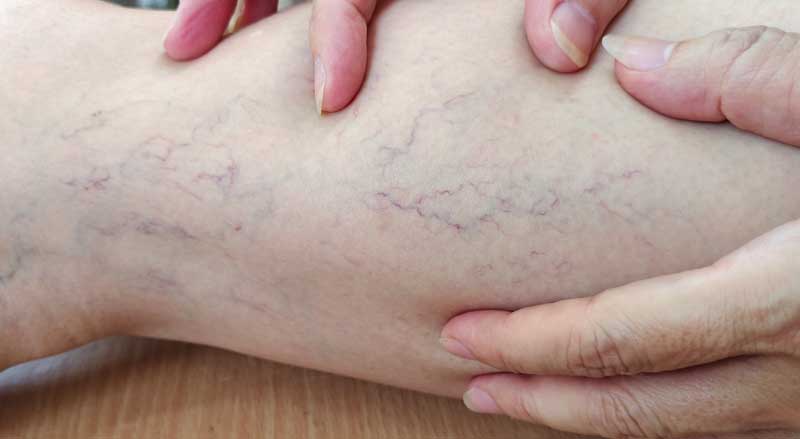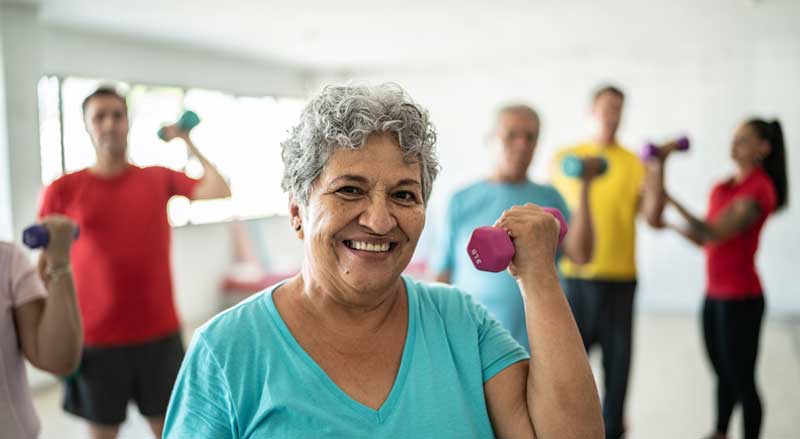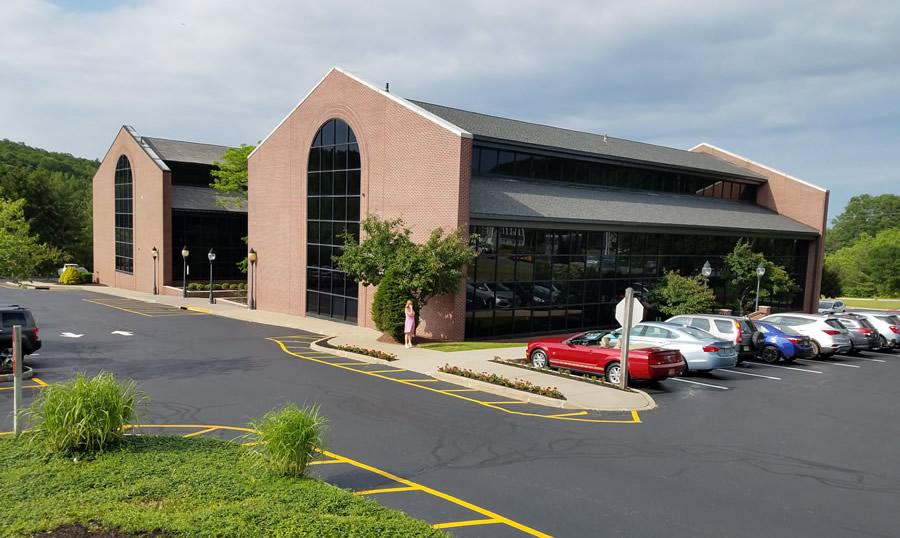Fluctuating hormone levels caused by pregnancy, birth control pills, hormonal treatments, and aging, can play havoc with vein health.
Hormonal imbalances of progesterone and estrogen can lead to many physical problems, including the development or worsening of varicose veins.
Can changes in hormone levels cause varicose veins? You bet!
Estrogen’s Role in Vein Health
It is important that the estrogen and progesterone hormonal levels maintain a healthy balance.
Elevated levels of estrogen, especially during pregnancy, can encourage the development of varicose veins. Estrogen causes blood vessels to widen and increase blood flow. However, it also makes blood vessels weaker.
The heightened levels of estrogen increase the risk of blood clots and inflammation and weaken vein walls. Varicose veins also become more visible.
Progesterone’s Role in Vein Health
Progesterone can actually lessen some unwanted vein symptoms caused by increased estrogen. It relaxes blood vessels, smooth muscles and increases collagen production. Collagen strengthens vein walls. In fact, too little collagen has been associated with the development of both varicose and spider veins.
However, higher levels of progesterone can hurt the valves in the veins that are needed to control blood flow in the veins. If veins don’t function properly, blood will flow both ways, and will pool around the poorly functioning valve.
Higher progesterone levels can also dilate smaller veins, making them more visible to the naked eye.
Leg veins are more sensitive to progesterone than veins in other parts of the body. When hormone levels fluctuate, vein health is at risk.
Dr. Stuart Miller of The New Jersey Vein and Vascular Center (NJVVC) explains why imbalanced levels of progesterone are so dangerous to veins.
Progesterone Levels and Varicose Veins in Pregnancy
When a woman is pregnant, her hormones fluctuate. The potential dangers are compounded by changes to the woman’s vascular system and pressure from the expanding uterus. Not only does the woman gain weight, but blood volume in the veins increases. Progesterone and estrogen hormone levels both increase and fluctuate.
Progesterone levels begin to rise in the 9th week of pregnancy and continue to slowly rise until week 32. After the 12th week, the placenta makes progesterone.
It’s now believed that not only estrogen, but progesterone also plays a major role in the formation of varicose veins during pregnancy.
As reported by the Vein Clinics of Cleveland, a 2009 Croatian study showed that women who had higher levels of progesterone during pregnancy also had a higher incidence of varicose vein development. This caused the researcher to conclude that progesterone during pregnancy also contributes to varicose veins.
Progesterone levels in pregnancy also affect water retention and weight gain. Pressure on the veins increases and further contributes to pregnancy vein issues.
Progesterone relaxes smooth muscles, allowing for increased blood flow and can usually reduce pressure on veins. However, as reported by the National Institute of Health, during pregnancy this increased level of progesterone that inhibits smooth muscle contraction, can “[result] in disorders of the vein shrinkage, affecting the increase of their capacity and valvular insufficiency, and valvular edges are not in contact with each other due to the vasodilatation.”
After childbirth, many women see their varicose veins improve and disappear— although this is not always the case.
You can expect vein damage to increase with each subsequent pregnancy.
Here’s more about veins and pregnancy.
Birth Control Pills/Supplements
Some women are directed by their doctors to take birth control pills or supplements, containing progestin—a synthetic form of progesterone—to ease the effects of menopause. These women have an increased chance of developing varicose and/or spider veins. Progestin, like its natural counterpart, progesterone, will make the vein walls dilate and become more susceptible to damage.
It’s important that women talk to their doctors about the potential risks and benefits of these pills and/or supplements.
Aging and Menopause
Both progesterone and estrogen levels fluctuate as you age, increasing a woman’s possibility of developing varicose veins. Read more about why menopause increases your risk of varicose veins.
As women approach menopause, their hormonal levels of estrogen and progesterone drop and body weight increases. This can cause vein damage. Women often first notice varicose veins at this time. Or women who already have varicose veins may notice more bothersome symptoms or that the veins are becoming more visible.
Risk Factors that make you prone to developing varicose veins include:
- Age
- Being female— Women are more prone to developing varicose veins because they often have weaker vein walls and valves than men do
- Pregnancy—effects of fluctuating hormones
- Family history
- Being overweight
- Standing or sitting for long periods of time
Ways You Can Help Your Varicose Veins
If you’re suffering with varicose veins caused by fluctuating hormones or other causes, there are things you can do to help.
They are:
- Exercise regularly and walk more to help blood circulation
- Avoid sitting or standing for a long time
- Elevate your legs to reduce swelling and help blood reach the heart
- Wear compression socks to keep pressure on your lower legs
- Stay at a healthy weight
- Avoid hot tubs
- Stay cool in the shade outdoors or in air conditioning
Make these dietary changes:
- Take Vitamin C to help veins get stronger
- Eat anti-inflammatory foods like blueberries or whole grains
- Eat fiber-rich foods
- Choose low-sodium food selections
- Stay hydrated
Learn more about spider veins and reticular veins.
At NJVVC, we offer several effective and painless options to treat varicose veins. Contact us for a vein consultation.

